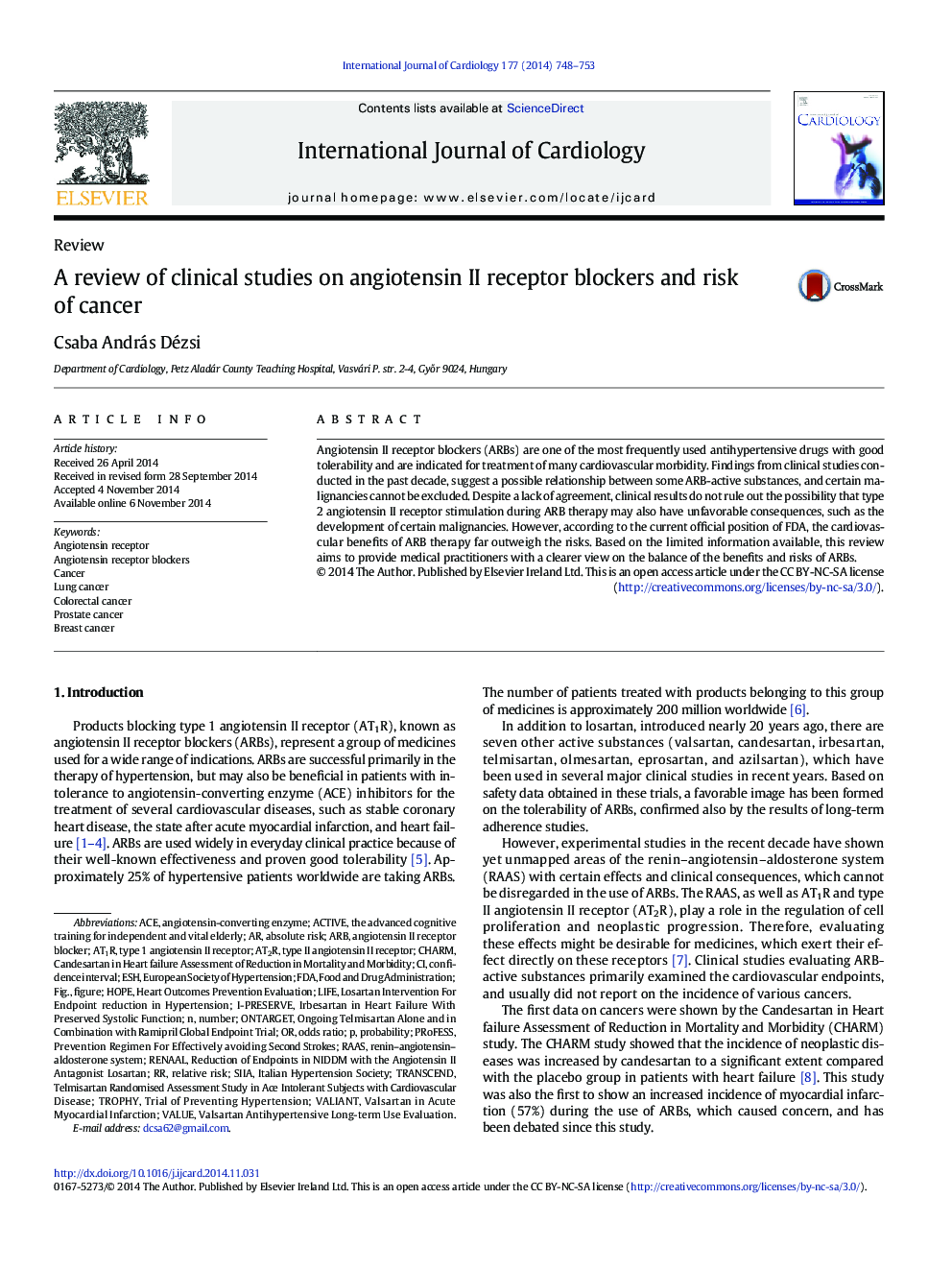| کد مقاله | کد نشریه | سال انتشار | مقاله انگلیسی | نسخه تمام متن |
|---|---|---|---|---|
| 5969500 | 1576175 | 2014 | 6 صفحه PDF | دانلود رایگان |

- Angiotensin II receptor blockers (ARBs) are one of the most frequently used antihypertensive drugs with good tolerability and are indicated for treatment of many cardiovascular morbidity. Findings from clinical studies conducted in the past decade, suggest a possible relationship between some ARB-active substances, and certain malignancies cannot be excluded. Despite a lack of agreement, clinical results do not rule out the possibility that type 2 angiotensin II receptor stimulation during ARB therapy may also have unfavorable consequences, such as the development of certain malignancies. However, according to the current official position of FDA, the cardiovascular benefits of ARB therapy far outweigh the risks. Based on the limited information available, this review aims to provide medical practitioners with a clearer view on the balance of the benefits and risks of ARBs.
- Based on the available data, there appears to be a moderately increased risk of various cancerous manifestations during the use of some ARB-active substances. However, the benefits associated with the administration of ARBs (reduction of certain cardiovascular events) exceed the equivocal 'undesired side effects'. This issue was raised by the recent European Society of Hypertension guideline (ESH 2013), which stated that no clear-cut correlation can be demonstrated between ARB therapy and neoplastic diseases [34]. Although this issue generated debate in the FDA, their final official position statement was also formulated according to ESH guideline [35]. All these support the need for an appropriate level of pharmacovigilance. This viewpoint is also shared by the Italian Hypertension Society (SIIA), which did not recommend the issue of any warning in relation to antihypertensive therapy with ARBs [36]. Further studies and data collection are required to precisely identify the ARB-active substances and the types of cancer, as well as to establish exact correlations.
Angiotensin II receptor blockers (ARBs) are one of the most frequently used antihypertensive drugs with good tolerability and are indicated for treatment of many cardiovascular morbidity. Findings from clinical studies conducted in the past decade, suggest a possible relationship between some ARB-active substances, and certain malignancies cannot be excluded. Despite a lack of agreement, clinical results do not rule out the possibility that type 2 angiotensin II receptor stimulation during ARB therapy may also have unfavorable consequences, such as the development of certain malignancies. However, according to the current official position of FDA, the cardiovascular benefits of ARB therapy far outweigh the risks. Based on the limited information available, this review aims to provide medical practitioners with a clearer view on the balance of the benefits and risks of ARBs.
Journal: International Journal of Cardiology - Volume 177, Issue 3, 20 December 2014, Pages 748-753